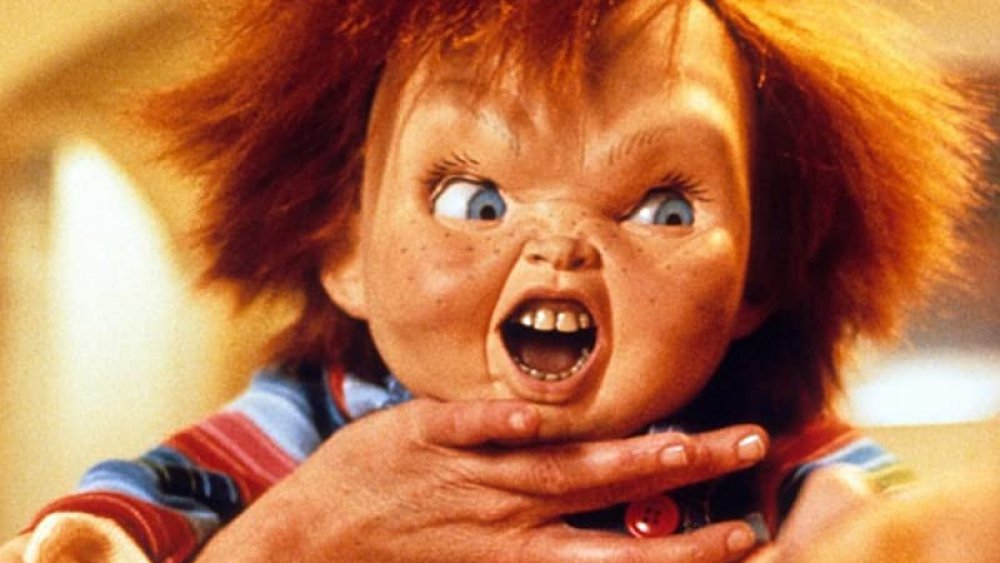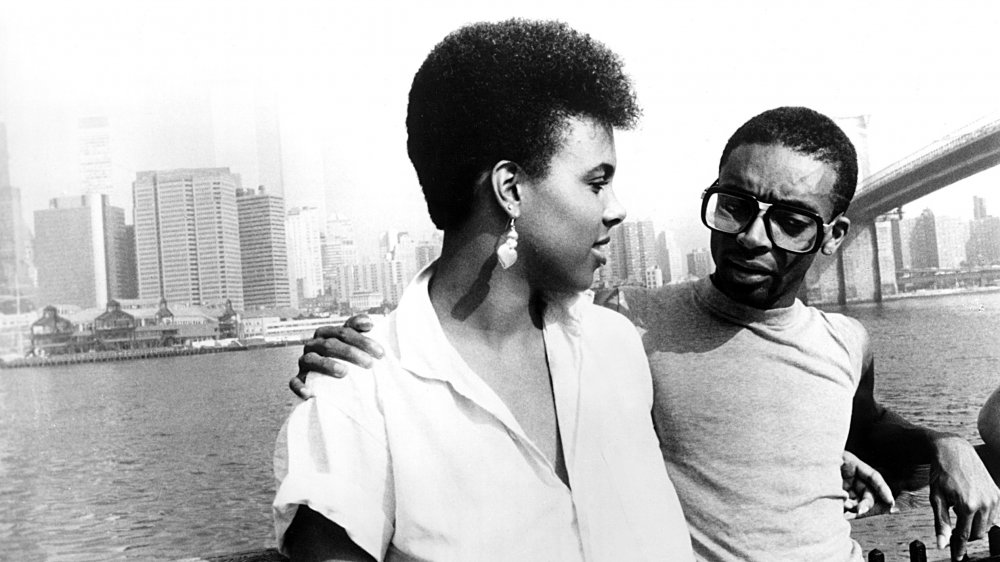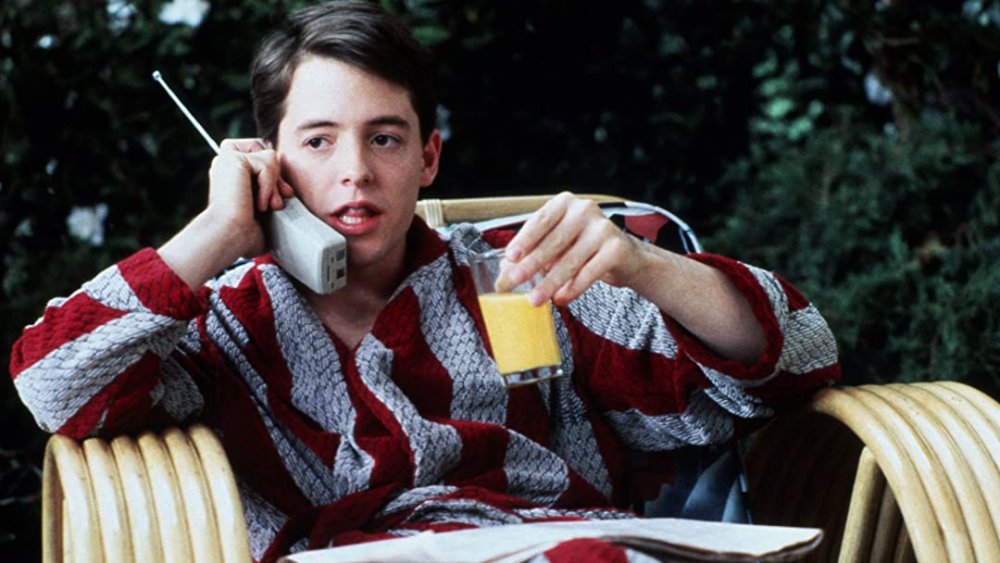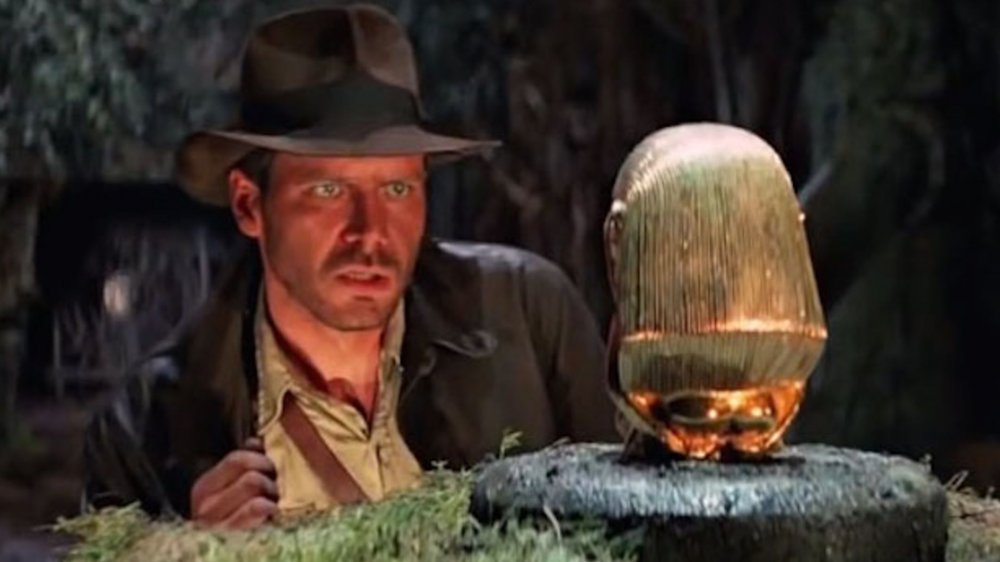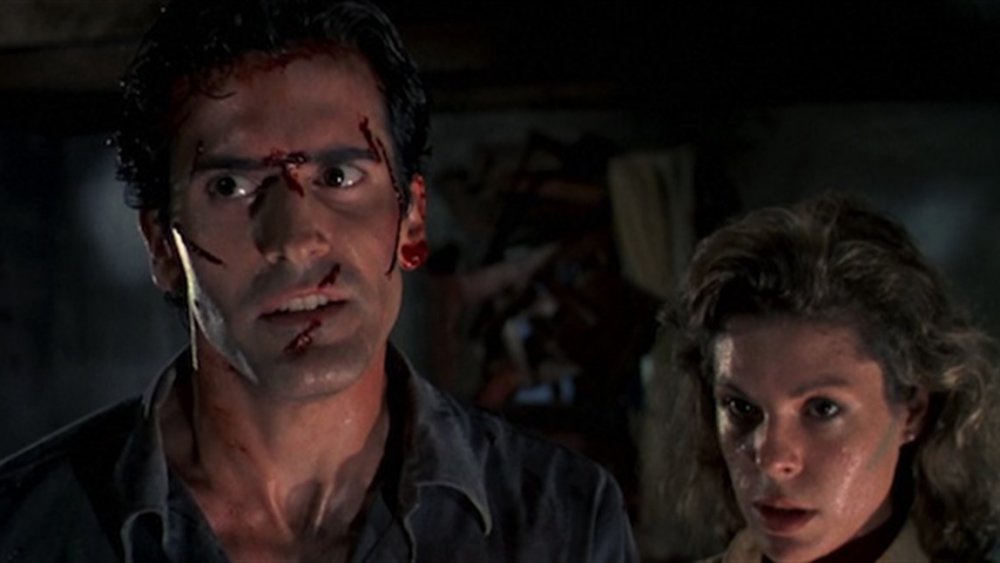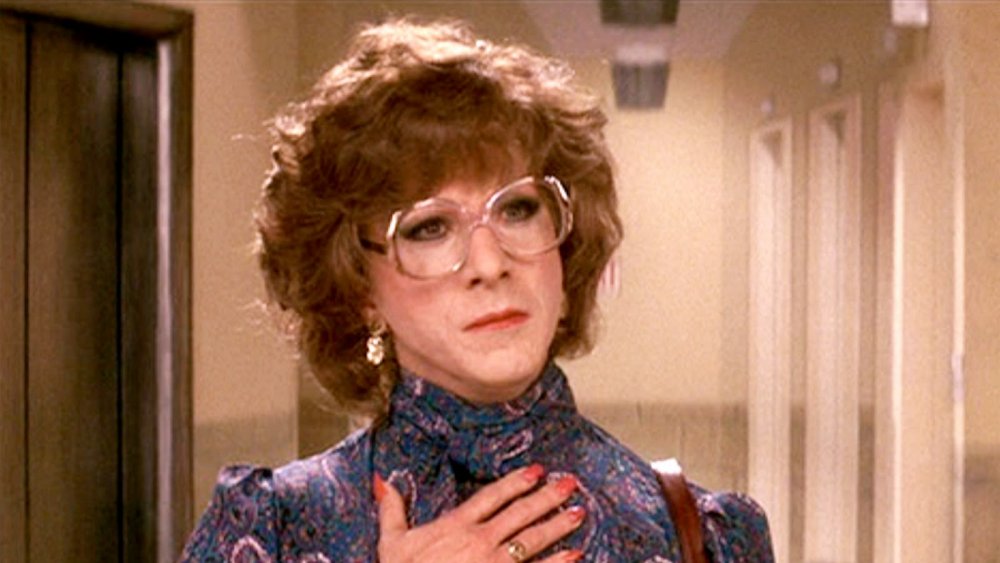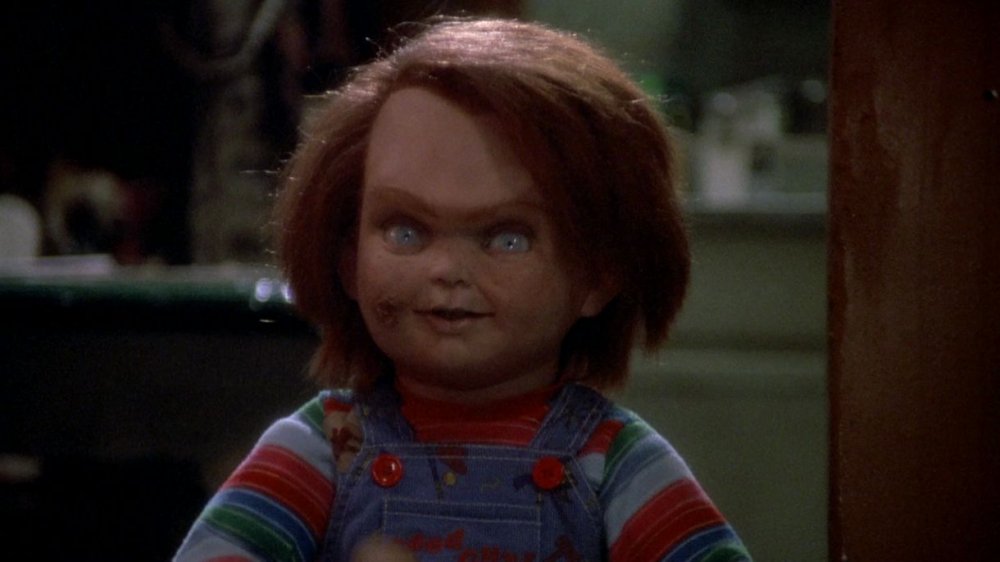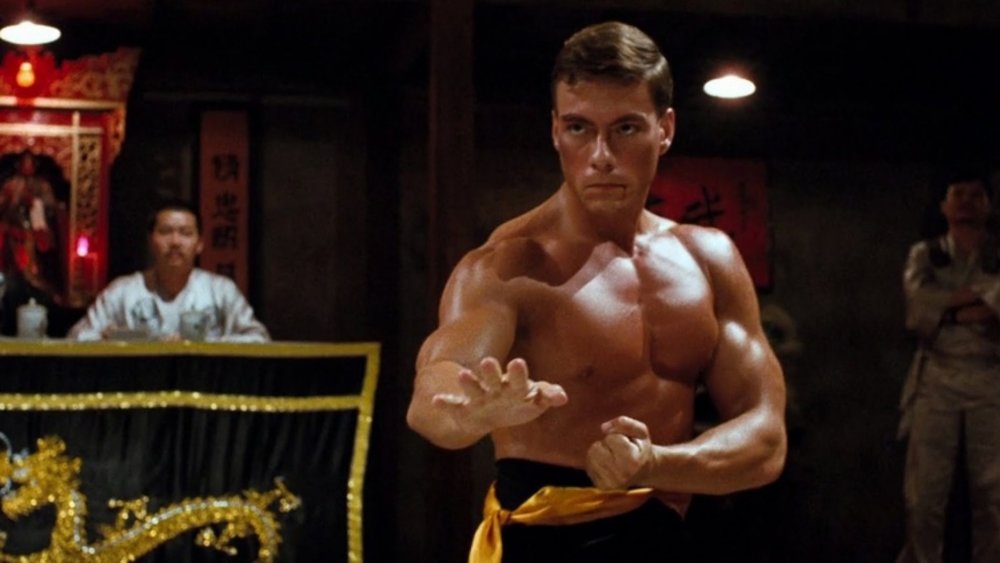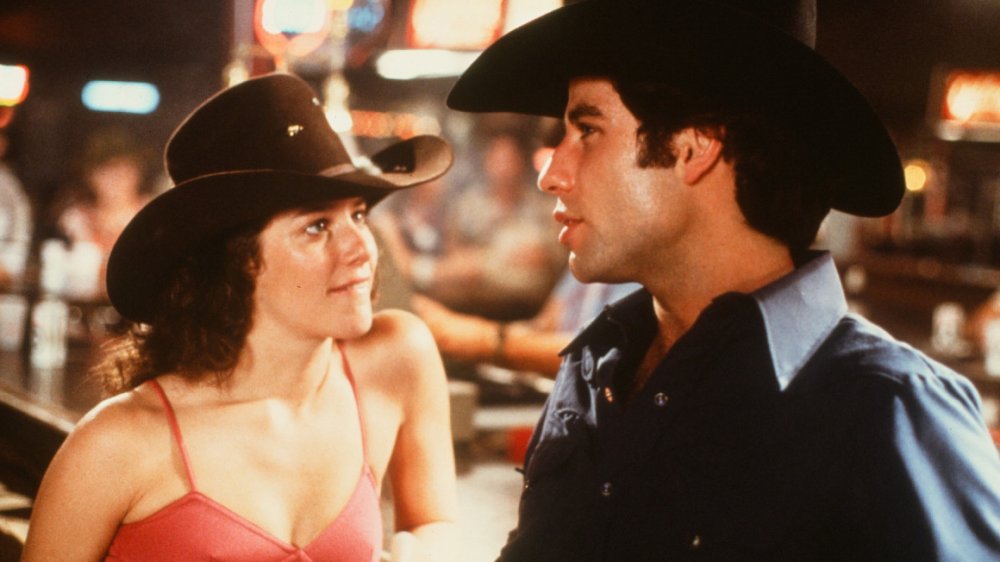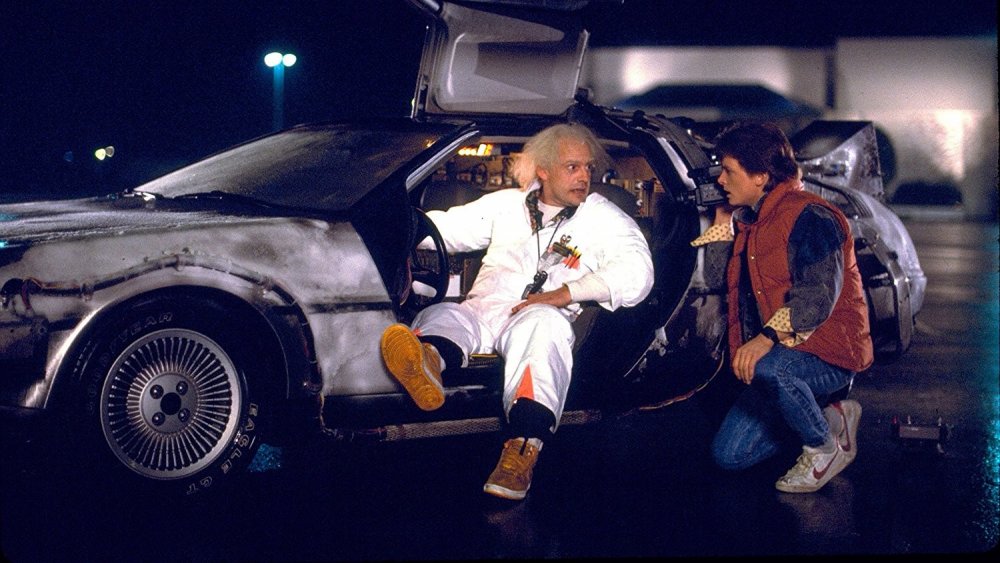The Best '80s Movies You Can Watch On Netflix Right Now
The 1980s were a fascinating decade for film. The New Hollywood movement of the 1970s had produced a number of daring, innovative, and successful new artists, and many of them were out there trying new things and creating fascinating new masterpieces. But the 1970s had also given birth, through films like Star Wars, to the idea of the modern blockbuster, which meant studios were constantly chasing money through various genres and subgenres. This, plus the continued rise of independent cinema throughout the decade, creates a fascinating collage of contrasts in the cinematic landscape. You get everything from small-scale critical darlings to big budget screwball comedies and everything in between, sometimes from the same filmmaker, and it all combines to give us one of the all-time most exciting decades for film.
Thankfully, a great many of the classic films produced in the 1980s are now available to stream anytime you want on Netflix, whether you're in the mood for a science fiction classic or a joke-a-second raunchy comedy vehicle. From an iconic John Hughes joint to the debut of Spike Lee and everything in between, these are the best '80s movies to watch on Netflix.
She's Gotta Have It
If you love a filmmaker, there's a natural inclination to want to go back and explore their entire filmography, including the early films that might not be as flashy as their recent work but still made a massive impact. If you're a Spike Lee fan, that means She's Gotta Have It is essential, but the film's impact goes far beyond Lee's own career.
Yes, She's Gotta Have It is Lee's debut feature, and the film that helped him go on to make things like Do The Right Thing and Jungle Fever in the years that followed, but it's also a milestone for other reasons. Lee was working with a low budget, shooting in black and white, and remaining as creative as possible with few resources at a time when independent film was not yet the booming subculture it would be a few years later as the 1990s gave rise to more DIY filmmakers. Plus, Lee's film arrived at a time when many audiences weren't used to seeing black characters presented this way, and the film helped blaze a trail both for his own filmography and for other black filmmakers to come. Watch it, then watch Lee's Netflix series based on it.
Ferris Bueller's Day Off
Perhaps no other filmmaker is more associated with the overall aesthetic of "'80s Movies" than John Hughes, the writer/director who rose to prominence over the course of the decade, created a host of new stars, and redefined the teen comedy forever. Though Hughes' filmography is actually rather diverse when taken as a whole, the mid-to-late-1980s were the time in which he very successfully honed in on a single target — the disaffected American teenager — to spin comedic gold.
Sadly, most of Hughes' teen comedy classics are not available on Netflix at the moment, but Ferris Bueller's Day Off is there for you to rewatch to your heart's content. The film follows the title character — played with undeniable charisma by Matthew Broderick — as he decides to take a sick day from school and turn it into the best vacation possible, all while his suspicious principal is hot on his trail. It's not the most realistic of Hughes' films, but it is one of the most consistently delightful.
The Indiana Jones trilogy
In the 1970s, both Steven Spielberg and George Lucas had breakout hits that essentially invented the modern-day blockbuster: Spielberg with his stylish shark scare-fest Jaws and Lucas with his mythic space opera Star Wars. In the 1980s, the two friends joined forces to further reinvent mainstream commercial cinema as we know it with a series of films inspired by matinee adventure serials starring a dashing hero with a bullwhip and a fedora.
The original Indiana Jones trilogy that spans the 1980s still holds up as one of the best action franchises in film history, and a pure distillation of the star power of Harrison Ford in the title role. The first film, Raiders of the Lost Ark, is basically a perfect adventure movie. Indiana Jones and the Temple of Doom can't quite live up to its predecessor but still has its defenders, and Indiana Jones and the Last Crusade brings us the can't-miss superteam of Ford and Sean Connery as Indy's father. Even if you've seen them dozens of times, the Indiana Jones films are the kind of experiences that don't get dull with time.
The Evil Dead
The early 1980s was a very fruitful time for horror cinema and produced several highly influential films that launched careers and paved the way for the genre's prevalence throughout the decade. One of these, of course, is Friday the 13th, which debuted in 1980 and led to a new slasher movie boom. A year later, an unknown filmmaker named Sam Raimi released a movie he made out in the woods with his friends, and launched a new wave of splattering supernatural horror.
The Evil Dead is not just a film that launched a franchise that, much like its titular monsters, just refuses to die. It's also not just the film that launched the careers of Raimi and star Bruce Campbell. It's a film that courted both controversy and rabid fan following thanks to its extreme content and wicked sense of humor, and launched a wave of low-budget, gory, often darkly comic films in its wake. Raimi's fingerprints are still all over the horror landscape today, and this is the film that launched it all.
Tootsie
People who have never seen Tootsie and only know it from clips and posters and the like might simply dismiss it as "that comedy where Dustin Hoffman crossdresses." While that is indeed the catalyst for and linchpin of the whole film's plot, Sydney Pollack's film about a desperate actor who decides to be a woman to land a job is much more than a one-note joke. The film has gone down in history as not just one of the best films of 1982 or even one of the best films of the 1980s, but as one of the best American films made in any decade.
Dustin Hoffman is, of course, relentlessly entertaining as he dons drag and uses a deep voice to shout for taxis, but the film also has something more to say about the sexist commercialistic drive of the 1980s which still holds true today. It's a film about changing attitudes, changing times, and changing people all wrapped up in a delightful comedic shell, and that means it's as rewarding on first watch as it is every time you return.
Child's Play
When Friday the 13th debuted at the dawn of the 1980s, it set off a slasher movie wave that resulted in countless knockoffs, many of them largely forgettable. What made the slasher boom great, for those who were fans of the subgenre, was the moments when filmmakers decided to go beyond the "crazy person with a knife" roots of the boom and instead just get really weird with it. You can see the fruits of that labor in films like A Nightmare on Elm Street (perhaps most memorably), Chopping Mall (less remembered, but still amazing in its weirdness), and of course, Child's Play.
In some ways, Child's Play is the ultimate 1980s slasher movie story, in that (like Chopping Mall) it's basically a metaphor for consumerism coming to kill us in the form of an evil product. That wicked little metaphor is hanging over everything, but it's also just a full-tilt dark comedy horror show full of creative kills, all dominated by Brad Dourif's unforgettable voice performance as Chucky. Though he's since been refined and altered in any number of ways, Chucky remains the ultimate terrifying doll because of this film, and no matter how used to seeing him you might be, he still has the power to scare you over the course of Child's Play's 90 minutes.
Bloodsport
When people think of action movies from the 1980s, they tend to have a few stereotypes in mind: corny dialogue, impossibly muscled men all oiled up and ready to fight, and maybe a few power ballads thrown in among the montages. The truth is that not every movie in the genre from the period lives up to this stereotype, which is a good thing. That said, sometimes the stereotypical '80s action movie experience is exactly what you want, and Bloodsport is definitely that kind of movie.
Jean-Claude Van Damme's breakout film casts him as a U.S. Army captain who decides to go AWOL so he can head to Hong Kong and fight in a secret, illegal martial arts tournament against other contenders from around the world. Along the way he forges friendships, makes enemies, and reveals through copious flashbacks why the tournament is so important to him.
So, this is basically Van Damme's Enter the Dragon, and while it's not as good as that film, Bloodsport still has a lot going for it if you're an '80s action fan. Plus it features Van Damme doing his famous splits over and over again to great effect.
Urban Cowboy
The 1980s were a fascinating hotbed for various subcultures (often commercially driven) that people quickly latched onto. Urban Cowboy was a John Travolta vehicle inspired by a rather specific subculture of the late 1970s that boomed and spread across America throughout the early years of the '80s, and we still see remnants of its popularity today. If you've ever seen a mechanical bull in a bar that's miles away from any real bulls, let alone real cowboys, there's a good chance this movie had something to do with it.
Travolta stars as Bud, a guy who moves to the Houston area and begins frequenting Gilley's, the local honky tonk where mechanical bull riding is all the rage and the mellow pop country tunes are always playing. There, what begins as a fiery romance eventually evolves into a love triangle, a rivalry between two men, and a mechanical bull riding contest with more than a little money riding on it.
Apart from the obvious appeal of Travolta at the peak of his movie star powers, Urban Cowboy still stands as a fascinating peek into a very specific world. It's also just a really entertaining movie.
Back to the Future Parts 1 and 2
There are certain films that, no matter how timeless they are, will always be identified with the time in which they were produced. Taxi Driver and Saturday Night Fever are among the quintessential 1970s movies, Jurassic Park and Pulp Fiction are definitive '90s movies, and the first two films in the Back to the Future trilogy will always be identified as essential films of the 1980s.
Back to the Future is so ingrained in the pop culture lexicon that you know the story even if you've never seen it. Michael J. Fox stars as Marty McFly, a 1985 kid from the suburbs who just happens to know a scientist who's built a time machine, and accidentally uses that time machine to travel back to 1955 and meet the teenaged versions of his own parents. It remains one of the most influential and celebrated films of the '80s in part because of its visual effects and instantly memorable plot, but also because of the sheer '80s-ness of it all. It's about a kid in a bright orange vest who drives a DeLorean through time, then plays hair metal licks on a guitar at a school dance. Also Huey Lewis is in it. That's about as '80s as it gets.
Plus, once you've revisited the iconic first film, you can move right on to the second, which is arguably even more of an '80s movie because of the wild ways in which it designs "the future" from the mindset of 1989.
